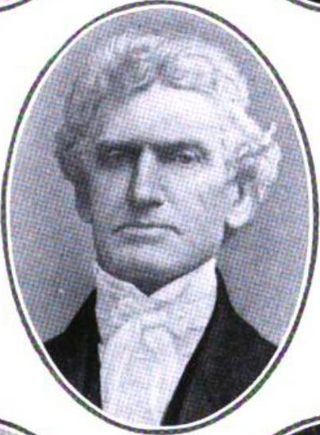Dred Scott v. Sandford, 60 U.S. 393 (1857), was a landmark decision of the United States Supreme Court that held the U.S. Constitution did not extend American citizenship to people of black African descent, and therefore they could not enjoy the rights and privileges the Constitution conferred upon American citizens. The decision is widely considered the worst in the Supreme Court's history, being widely denounced for its overt racism, judicial activism, poor legal reasoning, and crucial role in the start of the American Civil War four years later. Legal scholar Bernard Schwartz said that it "stands first in any list of the worst Supreme Court decisions". A future chief justice, Charles Evans Hughes, called it the Court's "greatest self-inflicted wound".

Peon usually refers to a person subject to peonage: any form of wage labor, financial exploitation, coercive economic practice, or policy in which the victim or a laborer (peon) has little control over employment or economic conditions. Peon and peonage can refer to both the colonial period and post-colonial period of Latin America, as well as the period after the end of slavery in the United States, when "Black Codes" were passed to retain African-American freedmen as labor through other means.

The Supreme Court of the State of North Carolina is the state of North Carolina's highest appellate court. Until the creation of the North Carolina Court of Appeals in the 1960s, it was the state's only appellate court. The Supreme Court consists of six associate justices and one chief justice, although the number of justices has varied. The primary function of the Supreme Court is to decide questions of law that have arisen in the lower courts and before state administrative agencies.
Rachel v. Walker (1834) was a "freedom suit" filed in the St. Louis Circuit Court by an African-American woman named Rachel who had been enslaved. She petitioned for her freedom and that of her son James (John) Henry from William Walker, based on having been held illegally as a slave in the free territory of Michigan by a previous master, an Army officer. Her case was appealed to the Supreme Court of Missouri, where she won in 1836. The court ruled that an Army officer forfeited his slave if he took the person to territory where slavery is prohibited. This ruling was cited as precedent in 1856 in the famous Dred Scott v. Sandford case before the Supreme Court of the United States.
Prigg v. Pennsylvania, 41 U.S. 539 (1842), was a United States Supreme Court case in which the court held that the Fugitive Slave Act of 1793 precluded a Pennsylvania state law that prohibited blacks from being taken out of the free state of Pennsylvania into slavery. The Court overturned the conviction of slavecatcher Edward Prigg as a result.

François Xavier Martin, was a Franco-American lawyer and author, the first Attorney General of State of Louisiana, and longtime Justice of the Louisiana Supreme Court. Born in Marseille, he moved to Martinique in 1780, and then immigrated to North Carolina just before the end American Revolutionary War. He was appointed as Attorney General of the Territory of Orleans after the Louisiana Purchase; he also helped untangle layers of French and Spanish colonial law in the territory and subsequent state of Louisiana. His legal writing and reviews of cases was important to codification of Louisiana law in the 1820s.

Thomas Ruffin (1787–1870) was an American jurist and justice of the North Carolina Supreme Court from 1829 to 1852 and again from 1858 to 1859. He was chief justice of that Court from 1833 to 1852.
Slavery at common law in the British Empire developed slowly over centuries, and was characterised by inconsistent decisions and varying rationales for the treatment of slavery, the slave trade, and the rights of slaves and slave owners. Unlike in its colonies, within the home islands of Britain, until 1807, except for statutes facilitating and taxing the international slave trade, there was virtually no legislative intervention in relation to slaves as property, and accordingly the common law had something of a "free hand" to develop, untrammelled by the "paralysing hand of the Parliamentary draftsmen". Two attempts to pass a slave code via Parliament itself both failed, one in the 1660s and the other in 1674.

Arthur William Hodge was a Tortolan-born planter, serial killer and politician who was executed by hanging in 1811 for the crime of murdering one of his slaves. Born on the British Virgin Islands, Hodge studied at Oriel College, Oxford, matriculating in 1781 before briefly serving as an officer in the 23rd Regiment of Foot. Returning to Tortola in 1803, he settled down to a life as a plantation owner while also pursuing a political career, serving in both the Executive Council and Legislative Assembly of the British Virgin Islands. In 1811, Hodge was hung after being found guilty of murdering of a slave he owned, the first British subject to be executed for such a crime.

James Iredell was one of the first Justices of the Supreme Court of the United States. He was appointed by President George Washington and served from 1790 until his death in 1799. His son, James Iredell Jr., was a Governor of North Carolina.
Dougherty v. Stepp, 18 N.C. 371 is a decision of the North Carolina Supreme Court authored by Chief Justice Thomas Ruffin. For at least a century, this case has been used in first-year Torts classes in American law schools to teach students about the tort of trespass upon real property.

Lemmon v. New York, or Lemmon v. The People (1860), popularly known as the Lemmon Slave Case, was a freedom suit initiated in 1852 by a petition for a writ of habeas corpus. The petition was granted by the Superior Court in New York City, a decision upheld by the New York Court of Appeals, New York's highest court, in 1860 on the eve of the Civil War.
Capital punishment in New Jersey is currently abolished, after Governor of New Jersey Jon Corzine signed a law repealing it in 2007. Before this, capital punishment was used and at least 361 people have been executed.

Freedom suits were lawsuits in the Thirteen Colonies and the United States filed by slaves against slaveholders to assert claims to freedom, often based on descent from a free maternal ancestor, or time held as a resident in a free state or territory.
In the early nineteenth century, Quakers in North Carolina used trusts to free slaves. At the time, North Carolina had adopted laws restricting the ability of slaveowners to free their slaves. To get around these laws individual Quakers began entrusting their slaves to their church. The Quaker organization held on to the slaves in conditions of virtual freedom, until it could obtain the legal freedom of the slave. While this method of freeing slaves was initially popular, the practice fell into disuse as a result of demographic and political reasons.

Slavery in what became the U.S. state of Illinois existed for more than a century. Illinois did not become a state until 1818, but earlier regional systems of government had already established slavery. France introduced African slavery to the Illinois Country in the early eighteenth century. French and other inhabitants of Illinois continued the practice of owning slaves throughout the Illinois Country's period of British rule (1763–1783), as well as after its transfer to the new United States in 1783 as Illinois County, Virginia. The Northwest Ordinance (1787) banned slavery in Illinois and the rest of the Northwest Territory. Nonetheless, slavery remained a contentious issue, through the period when Illinois was part of the Indiana Territory and the Illinois Territory and some slaves remained in bondage after statehood until their gradual emancipation by the Illinois Supreme Court. Thus the history of slavery in Illinois covers several sometimes overlapping periods: French ; British ; Virginia ; United States Northwest Territory (1787–1800), Indiana Territory (1800–1809), Illinois Territory (1809–1818) and the State of Illinois.

Robert Wash served on the Supreme Court of Missouri from September 1825 to May 1837. During his term, the pro-slavery judge, who owned slaves himself, wrote the dissenting opinion on several important freedom suits, including Milly v. Smith, Julia v. McKinney and Marguerite v. Chouteau. However, he did join in the unanimous finding for the plaintiff in the landmark Rachel v. Walker case.
The Guardian of Sally v. Beatty was a 1792 court case decided in the Supreme Court of South Carolina. A jury charged by Chief Justice John Rutledge held that a slave who had been bought and manumitted by another slave was free, not the other slave's owner's property.

Bartholomew Figures Moore was an American attorney and politician. As a Whig, he served in the North Carolina legislature then as Attorney General of the state from 1848 to 1851. He also was head of the North Carolina Bar for several years, becoming known as "father of the bar". A Unionist, he staunchly and vocally opposed succession and the Confederacy.











